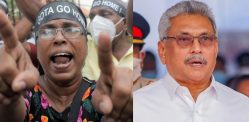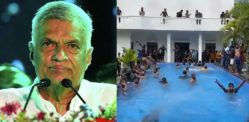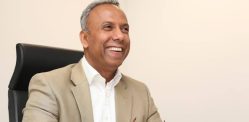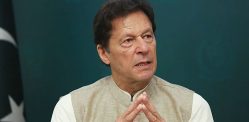"This victory belongs to all of us."
Left-leaning leader Anura Kumara Dissanayake has won Sri Lanka’s presidential election.
The election, held on September 21, 2024, was the first since mass protests in 2022 which saw Sri Lanka’s then-leader Gotabaya Rajapaksa unseated as the country faced its worst economic crisis.
Mr Dissanayake secured 42% of the votes counted.
This was followed by opposition leader Sajith Premadasa with 32% and incumbent President Ranil Wickremesinghe at 17%, according to the Election Commission.
While official results are yet to be announced, Mr Dissanayake, who leads the National People’s Power coalition, claimed he had won the polls as he said on X:
“This victory belongs to all of us.”
Anura Kumara Dissanayake, whose pro-working class and anti-political elite campaigning made him popular among youth, has come a long way since the presidential elections in 2019, where he won just over 3% of the vote.
He replaces Mr Wickremesinghe, who took over from Mr Rajapaksa when he was forced to resign in 2022 amid widespread protests over the worst economic crisis Sri Lanka had ever seen.
Mr Wickremesinghe’s foreign minister Ali Sabry congratulated Mr Dissanayake on X and said he hopes he will “lead with a commitment to transparency, integrity, and the long-term good of the country”.
Mr Sabry added: “I wish Mr Dissanayake and his team every success in their efforts to lead Sri Lanka forward.”
Mr Premadasa has not yet conceded defeat.
Sri Lanka’s crisis resulted largely from excessive borrowing on projects that did not generate revenue.
The country’s new president will be faced with the twin tasks of reviving the economy and lifting millions from crushing poverty.
An economic meltdown fuelled the unrest that unseated Mr Rajapaksa from the presidential palace in 2022.
At that time, Sri Lanka’s foreign currency reserves had dried up, leaving the country unable to import essentials such as fuel. Public debt had ballooned to $83 billion while inflation surged to 70%.
This made basics such as food and medicine unaffordable to ordinary people.
The country’s economic misery has been blamed on major policy errors, weak exports and years of under-taxation.
This was exacerbated by the Covid-19 pandemic, which choked tourism, a key economic driver.
But many people have also blamed corruption and mismanagement, stoking anger against Rajapaksa and his family, who collectively ruled Sri Lanka for more than 10 years.
During his term, Mr Wickremesinghe secured a $2.9 billion lifeline from the International Monetary Fund (IMF).
Sri Lanka is restructuring the terms of its debt payments with foreign and domestic lenders, as mandated by the IMF.
The main focus has been the country’s $36 billion in foreign debt, of which $7 billion is owed to China, its largest bilateral creditor.






























































